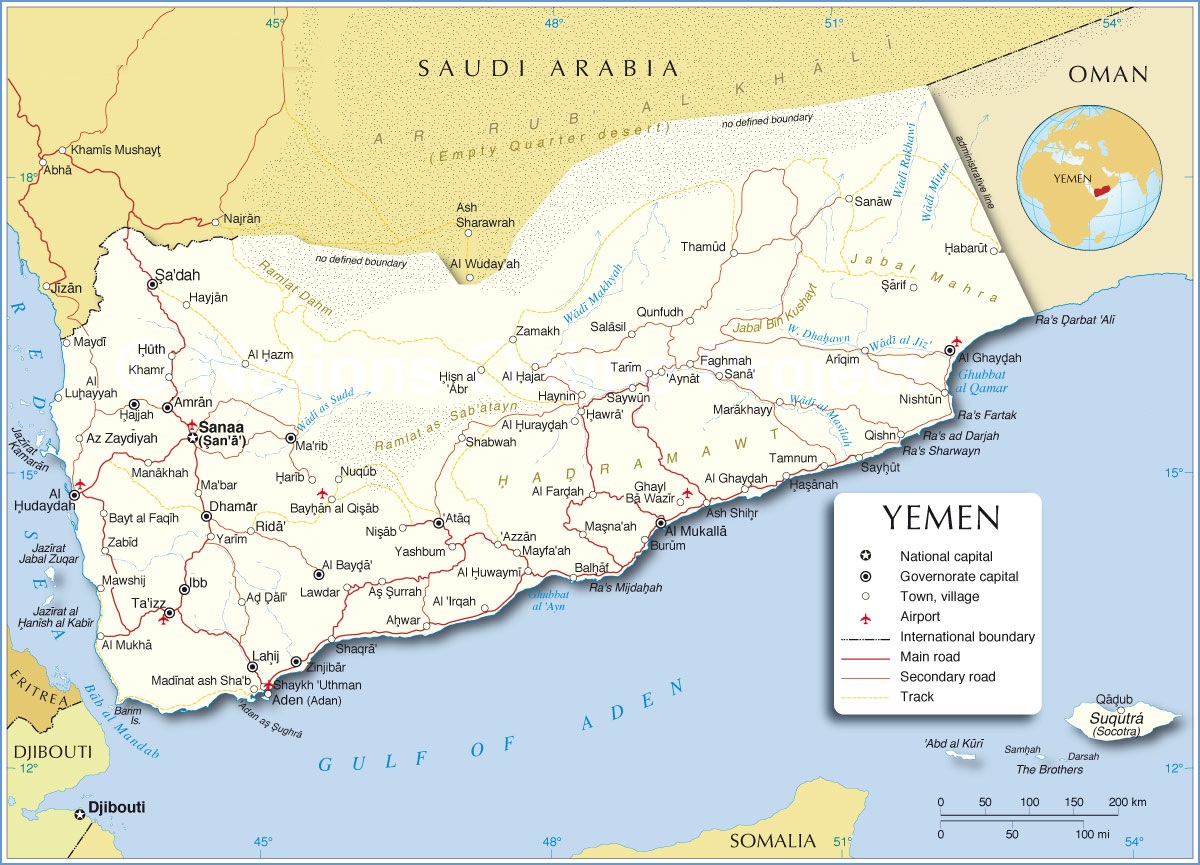The Saudi-led coalition warfare in Yemen has created yet another battlefield in the long-standing rivalry between the two regimes in Tehran and Riyadh. It has also signaled a significant change in the manner of confrontation. Saudi Arabia intends to deal collectively, directly and officially with the increasing Iranian domination. To this end, a Sunni-oriented alliance has been established and launched its first operation with the Arab League’s majority approval. A proposal for establishing joint Arab troops for intervention has also been endorsed, in principle, by the Arab League.
The Saudi-led coalition has included mainly Arab countries with Sunni majority population or Sunni-led governments; clearly visualizing the Saudi-Iranian competition as a Sunni-Shiite sectarian clash. Indeed, this foreboding war is being misleadingly designed to be fought as Arab struggle to contain the Iranian expansionary policy. Apparently, however, the absurd and devastating combat has already commenced: Arab-Arab warfare, Sunnis killing their fellow Shi’ite brother and vis-à-vis.
The Saudi-Arab coalition military intervention in Yemen has officially come in response to an appeal by the Yemeni government headed by President Abd Rabu Mansour Hadi who was ousted in a military coup d’état carried out by the Houthi militia, allegedly backed by Iran. However, the Saudis’ stated goal is to prevent the establishment of a pro-Iran regime in Sana’a or a Hezbollah-style state in Sa’ada.
The Arab collective military operation seems to be predetermined and well planned to change the rules of engagement. The ongoing fighting in Yemen is a straightforward military intervention by the Saudi-led Arab coalition. From the Houthi-Saleh alliance’s point of view it is a flagrant aggression on Yemen, meanwhile the ousted government emphatically defends it as necessary and legitimate to maintain the constitutional legitimacy.
The important point is that the current war in Yemen is inconsistent with the conventional definition of a proxy war. Saudi Arabia, along with the Gulf Cooperation Council (GCC) member states have been directly engaged in the military campaign that has commenced more than three months ago.
Obviously, the Saudi-leadership has decided to take the matter into their hands in Yemen, perhaps partially as the proxy war policy has failed to achieve the desirable ends in Syria and Lebanon where Iran’s allies remained in control. With their direct military involvement in Yemen, the Saudis seemingly have changed the rules of the game where proxy war and soft power policy gave way for direct hard power intervention.
Interestingly, though the Saudi-led war has aimed to curb Iranian potential influence in Yemen, Iran’s response has been disproportional. Since the early days of the airstrikes on Yemen, the Iranian government appeared to be powerless. Surprisingly, the Arab joint military initiative has already managed to neutralize the Iranians, shocked their allies, the Houthi-Saleh alliance, and sent an alarming message to Iran’s allies in Arab countries such as Lebanon and Syria.
The Houthis and their allies have been left to face their doomed fate. They have been fighting for six months while their alleged patrons have kept on watching idly. Iranians are perceived as if they have failed their Yemeni allies. However, Iran apparently can’t or is unwilling to do more to help the Houthis and fight a lost battle against the Saudis in Yemen for several reasons.
First, Iran’s strategic interest in Yemen is very simple and the Iranian influence on the Yemeni politics has been very limited. Another significant reason is that Yemen is not part of Iran’s defense deterrence strategy such as Lebanon or Syria where it has to make great sacrifices to defend its interests.
Second, Yemen’s geographic location, which is outside the Iranian sphere of influence, makes it very difficult for the Iranians to provide their allies in Yemen with the needed logistical and military support. Particularly, with the Saudi-led coalition has managed to make the Yemeni airspace a no-fly zone, imposing a marine blockade and getting a resolution from the international Security Council to ban weapon exports to the Houthi-Saleh alliance.
For example, an Iranian plane once tried to break the blockade in a bid to deliver some humanitarian aid, but in vain. It was forced to return as a warplane bombarded the square in the capital Sana’a where the flight was destined to make its landing. Moreover, though Iranian warships cautiously moved toward the Yemeni territorial waters, they did not risk approaching the Yemeni coasts as the United States’ warships were dispatched to the region.
Third, a proxy war against the Saudis in Yemen is too costly and not affordable.
Undoubtedly, Iranian hardliners would like to get their Saudi rivals entangled in a lingering military engagement in a country like Yemen. But Iran’s leadership is aware of the high price Iran will have to pay if they decide to sponsor proxy warfare in Yemen. Iranian leaders are too prudent to be tempted to fight a proxy war against the Saudis in Yemen which is very famous for its mercurial political spectrum. Iranians are familiar with Yemen’s history and tribal nature where Saudis have deeply controlled Yemeni politics through a wide-range patronage network including tribal leaders, influential politicians, religious scholars and military figures.
Against this background a proxy war against the Saudis in Yemen will be too costly to afford and it is unlikely to pay off. Realizing this fact, the Iranian response has been cautious and pragmatic. Officials in Tehran voiced condemnation of the military action, calling for an immediate end of the war, suggesting a peaceful solution to the crisis through Yemen-Yemeni dialogue, and nothing else. But no serious effort has been made by the Iranian government to press for halting the war.
The Egyptian experience also may have set a discouraging example.
A responsible and prudent leadership, like the Iranian, will think twice before supporting a Yemeni political faction or constituency against another one sponsored by Saudis.
Despite the huge sacrifices the Egyptians made in blood and treasure, Yemenis ultimately preferred to join their Saudi neighbors (historically staunch opponents) whose purse is always bigger, nearer and easier to open.
What about claims of Iranian engagement in the Yemeni conflict?
Yemeni officials long have been complaining about Iran’s support to the Houthis. Yet the consecutive governments in Sana’a have never shown any angry response to Iran’s policy.
Even when an Iranian ship was detected unloading sophisticated military equipment and weapons, allegedly destined to Houthis, no diplomatic measures were taken to protest such serious acts.
The reason simply is that Yemeni officials wanted to capitalize on the Houthis’ ties or communications with Iran to secure greater support from the rich-oil neighbors.
For their own part, the Houthis have always intended to conceal their relations with Iran. Like other Yemeni political forces, they understand that seeking Iranian help will secure their opponents strong support from the Saudis and other GCC member states. Yet, sometimes Yemeni opposition leaders may have to resort to Iran mainly to draw Saudi attention to their demands.
Unlike the Hezbollah in Lebanon, the Houthis have never publically admitted their alignment with Iran or having received Iranian assistance. Though they borrowed the Iranian slogan, the Houthis have tended to distance themselves from Iran as much as they can to avoid antagonizing their wealthy neighbors who will never tolerate a strong Yemeni-Iranian relationship, let alone alliance, as we have seen.
More to the point, the media reported that US intelligence had learned that the Iranians advised the Houthis not to takeover Sana’a but the latter did not follow the advice. That means Iranians have little control over the Houthis who have been employed by ex-president Saleh to carry out a coup as part of his counter-revolution against the Yemeni Arab Spring popular uprising which ousted him from power.
Iran’s Position
On the contrary, the Iranian officials have recently tended to boast about Iran’s relations with the Houthis. With the significant attainments the group made recently, Iran’s regime has prematurely announced that one more Arab capital joined the Iranian sphere of influence.
Obviously, they want to take the advantage of the Shiite-oriented movement’s achievement to strike a deal.
Indeed, the Iranians do understand that they can’t have a strategic or long-term ally in Yemen where political stability has always been elusive and loyalties are shifting quickly. However, Iran’s regime certainly should have welcomed the Houthis’ emergence who offered Tehran an opportunity to establish a militant faction identifying itself with the Islamic Republic of Iran’s ideology.
Iranian support to the Houthis aimed to empower the radical group so as to serve as a lobbying group or as bargaining chip to improve its negotiating positions over some regional issues.
Hence the Iranians would like to make the most of the Houthist insurgency so as to reduce pressures on their strategic allies in Syria, Lebanon and Iraq. Last year, when the Houthis arrived in the suburbs of Sana’a, President Hadi spoke openly that Iran would like to secure Damascus in exchange for Sana’a. Hadi’s statement back then might simply have served the intention of drawing the Saudis’ attention so as to get greater funds.
Iranian proxy war strategy is carefully designed to serve Iran’s long-term objectives, ensure fighting with inadequate weapons and winning minds and hearts of the oppressed people. Meanwhile Saudi Arabia’s proxy war policy has proved costly, arbitrarily and short-sighted.
The Saudi-Iranian proxy war in Iraq and Syria is a typical example of the Iranian ingenuity and the Saudi absurdity; Saudi Arabia has been fighting a destructive proxy war that has triggered a sectarian conflict, in which Arabs kill each other, squandering their resources, disturbing regional peace and stability for decades to come.





1 Comment
Pingback: Understanding the Yemeni Civil War: An Act of Internal Defiance or a Result of External Intervention? | Fox & Hedgehog